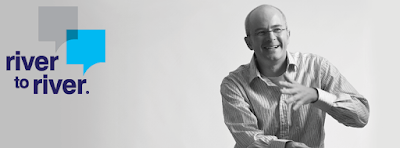THIS IS THE FIFTH OF
A FIVE-PART SERIES ABOUT THE NEED FOR MORE PUBLIC RADIO TALK & INTERVIEW
PROGRAMS
This week we have
been taking a closer look at station-based talk and interview programs
primarily on NPR News Stations. We believe this genre of programming has been (in
some cases) an overlooked and misunderstood genre. Because these programs are
often not given the respect they deserve, many stations have not pursued
them. This is a missed opportunity. Done properly, local talk and interview
programs can become
distinguishing
brand attributes with powerful pitch points. They also generate originl content that can
be used on all platforms.
The number of station-based
talk and interview programs has dropped 37% between 2007 and 2015. In most cases these programs have been
replaced by syndicated programming, particularly WBUR/NPR’s Here and Now or WNYC/PRI’s The Takeaway.
The loss of “local
service” is obvious. Beyond that, stations lost an opportunity for
in-the-moment live programming. The ability to be “live” instantly is one of
radio’s best assets. It is also an essential part of the news mix because what happens
on these programs can become news itself.
I have a received
quite a few compliments but most people want to hear more specifics. Before more station managers will embrace talk and
interview they need to know specifics: How these programs perform in pledging,
underwriting, ratings, etc. Most importantly, are they sustainable?
Finding this
information is my next quest. Today I am sharing my list of talk and interview
programs that air locally between the “tent poles,” typically 9am to 4pm. (Shows
that air a minimum of three days per week are required to make my list.)
The charts below contain information about 61 talk and
interview programs. I’m sure I haven’t included all of the programs,
particularly new ones. Some information
may also be dated. If you don’t see your
program on the list, or if key info has changed, please let me know. My email is publicradio@hotmail.com. Thank you.
If you don’t see your program on the list, or if key info
has changed, please let me know. My
email is publicradio@hotmail.com.
Thank you.
If you don’t see your program on the list, or if key info
has changed, please let me know. My
email is publicradio@hotmail.com.
Thank you.
If you don’t see your program on the list, or if key info
has changed, please let me know. My
email is publicradio@hotmail.com.
Thank you.















